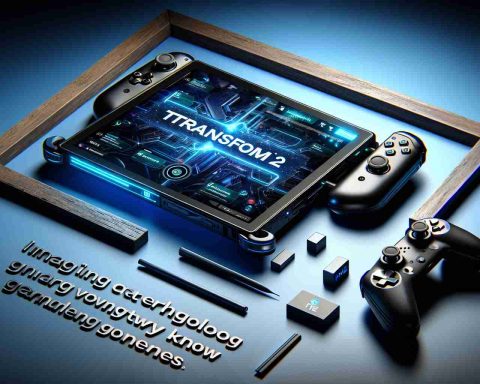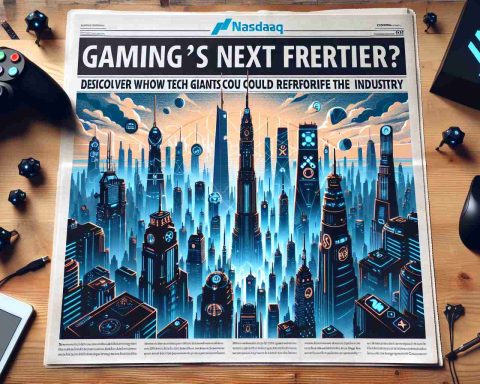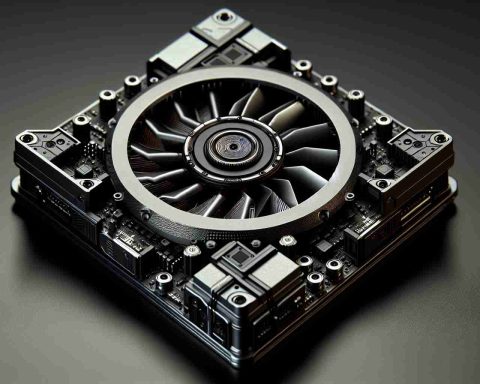Nvidia Secures EU Approval for Major Acquisition
In a significant development, the European Union has given its blessing for Nvidia to proceed with its acquisition of the Israeli company, Run:ai. This decision came after a thorough evaluation, allowing Nvidia to enhance its growth in the AI sector without violating market competition rules. The European Commission concluded that this merger would not monopolize the market, as other hardware options compatible with Nvidia will continue to be available.
Legal Hurdles Ahead in the U.S.
Despite the green light from the EU, Nvidia’s acquisition faces hurdles across the Atlantic. The U.S. Department of Justice has yet to approve the deal, leaving its future uncertain. This uncertainty looms large, but it does not quell optimism within the industry.
Encouragement for the AI Startups
The approval from the EU offers a beacon of hope for AI startups considering mergers and acquisitions. It demonstrates that consolidation can succeed, paving the way for future partnerships and growth in the AI sector.
The Financial Angle
Although the specific terms of the deal remain under wraps, local media suggests the acquisition is valued at approximately $700 million. Discussions about this deal began in April, marking a potentially transformative move for Nvidia and the evolving landscape of AI technology. As the situation develops, industry players are keenly observing the impact on market dynamics.
Nvidia’s Bold Move: What the EU Approval of Run:ai Acquisition Means for the AI Industry
Market Insights and Predictions
The European Union’s approval of Nvidia’s acquisition of Run:ai has sent ripples across the AI industry, signaling robust trends and shifting dynamics. Analysts predict that this merger could catalyze a wave of similar transactions, as AI companies seek to expand their technological capabilities and market reach. This decision highlights a growing trend towards consolidation, where companies are combining strengths to accelerate innovation and maintain competitive edges in the fast-evolving AI landscape.
Pros and Cons of the Nvidia-Run:ai Merger
Pros:
1. Enhanced Innovation: By bringing together Nvidia’s powerful hardware solutions and Run:ai’s pioneering AI software tools, there is a significant potential for accelerated innovation and development of cutting-edge technologies.
2. Market Expansion: Nvidia stands to bolster its market position globally and enhance its offerings in AI infrastructure, benefiting from the strategic expertise Run:ai brings.
3. Talent Acquisition: Incorporating Run:ai’s skilled workforce could provide Nvidia with fresh insights and creativity, fueling further advancements in AI applications.
Cons:
1. Regulatory Scrutiny: As seen with the U.S. Department of Justice’s pending approval, regulatory obstacles can delay or even derail strategic plans, injecting uncertainty into business forecasts.
2. Integration Challenges: Merging two dynamic operations can present challenges, from aligning corporate cultures to streamlining technological platforms.
Key Features and Innovations
The acquisition promises to blend Nvidia’s leading-edge GPUs and AI hardware capabilities with Run:ai’s software that efficiently orchestrates and optimizes AI workloads. This integration can streamline operations for enterprises, enabling the deployment of more sophisticated AI solutions at scale. By effectively managing and allocating computational resources, businesses could witness a marked increase in productivity and decreased operational costs.
Security Aspects and Sustainability
Both Nvidia and Run:ai prioritize security, focusing on safeguarding sensitive data, which is paramount in AI data processing and cloud operations. Additionally, Nvidia’s commitment to creating sustainable technology aligns with a global push towards reducing the environmental impact of large-scale data centers and computing operations.
Industry Comparisons and Market Analysis
Compared to its competitors, Nvidia’s strategic acquisition places it in a unique position to leverage both high-performing hardware and advanced AI software solutions. This dual capability could establish Nvidia as a leader in integrated AI solutions, distinguishing it from purely hardware or software-focused companies.
Global AI trends indicate an increasing demand for comprehensive platforms that can manage burgeoning AI complexities, a gap Nvidia seems poised to fill post-acquisition.
Conclusion and Future Outlook
In light of the EU’s approval, industry experts remain optimistic about Nvidia’s future growth and contributions to AI technology. While regulatory challenges in the U.S. may slow progress, the long-term advantages of the merger, such as enhanced capabilities and market reach, are multifaceted.
For further developments, visit the official Nvidia website for the latest news and updates on their strategic initiatives in the AI sector.

















